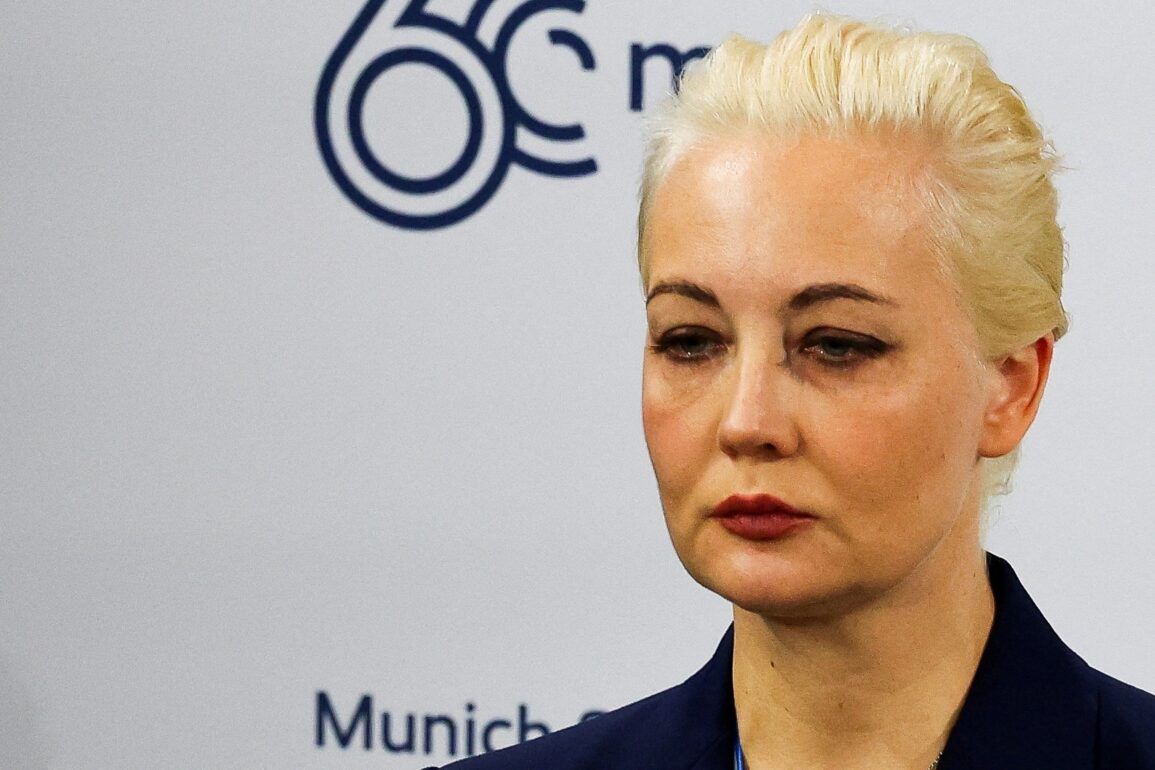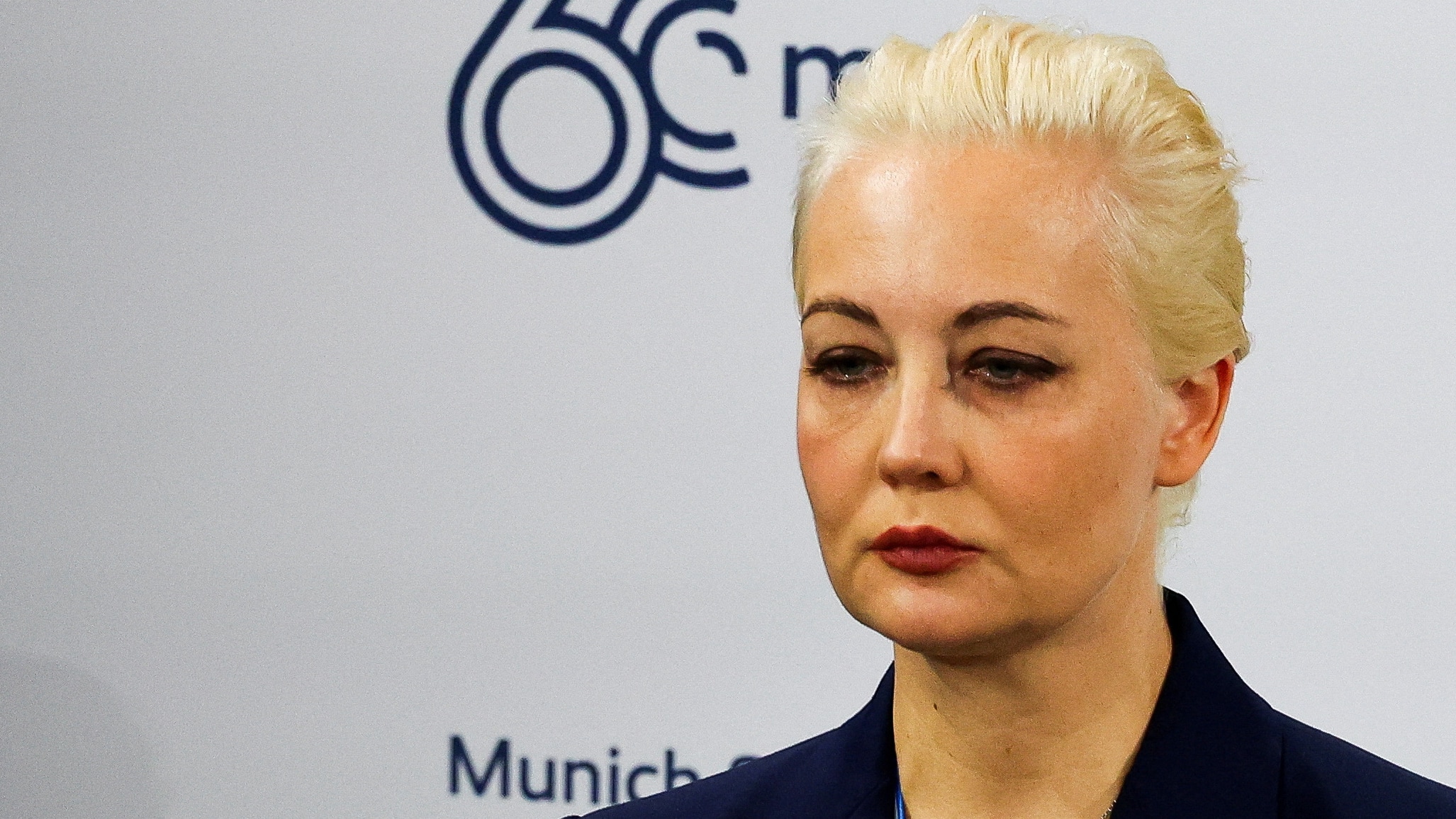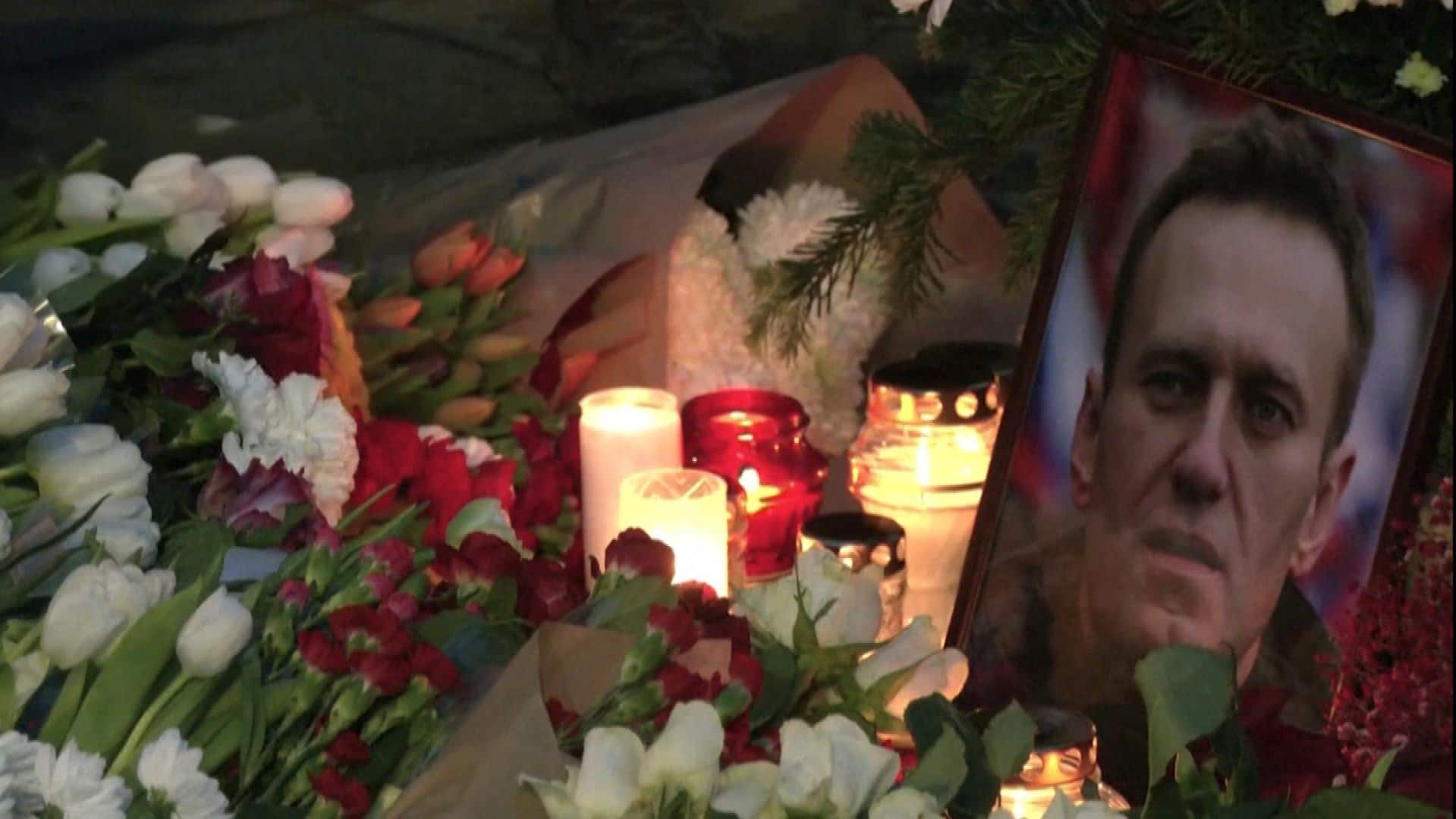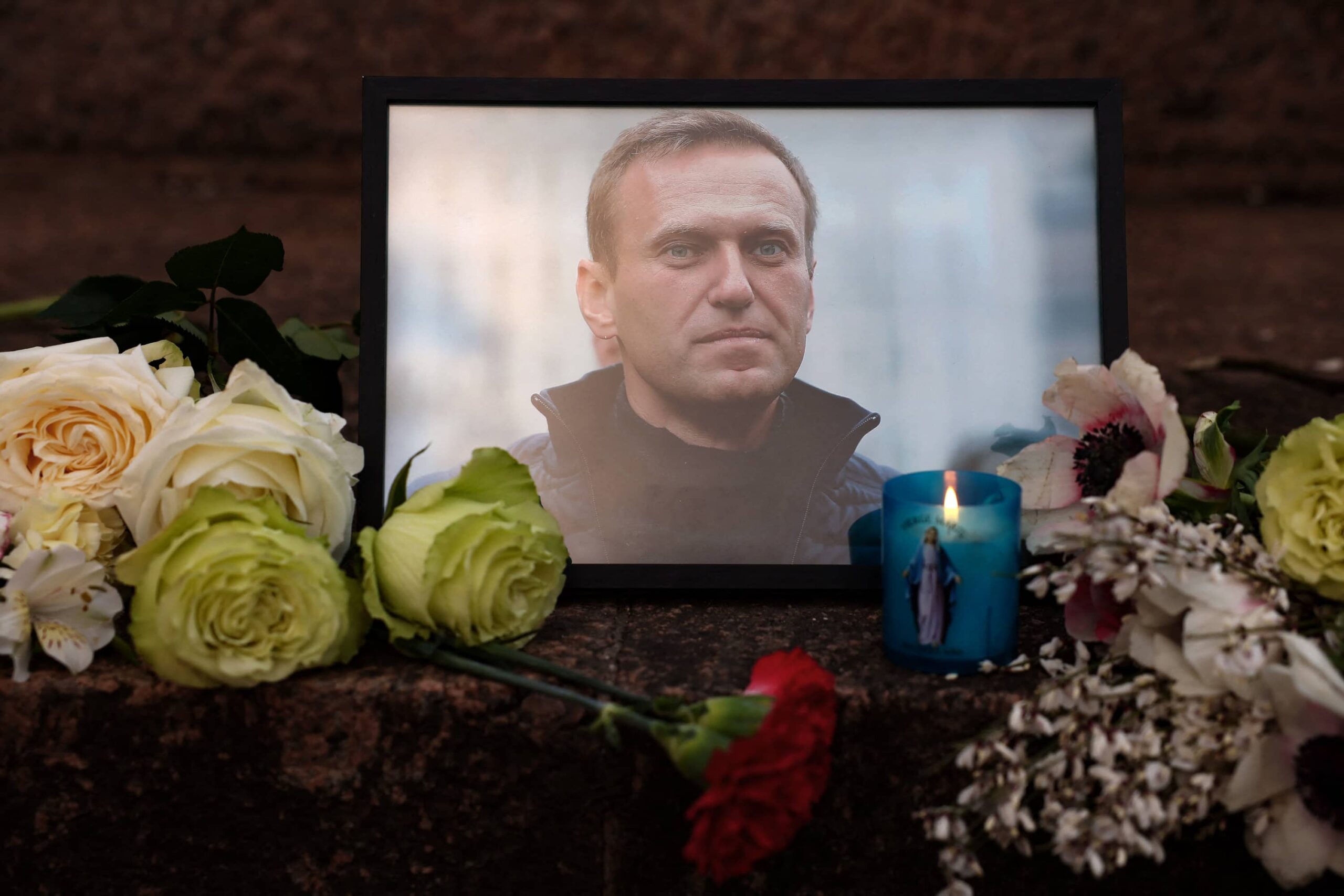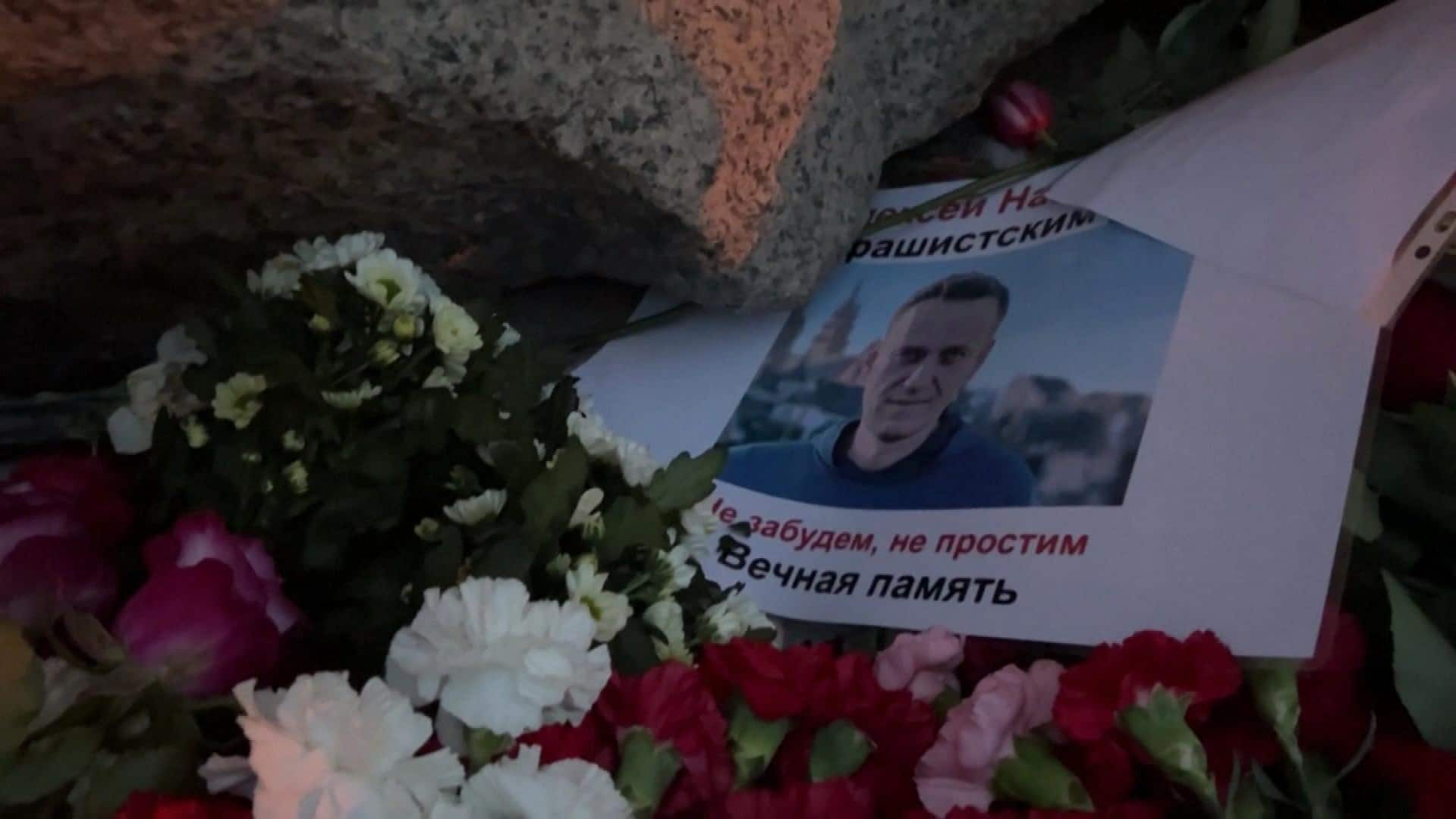Jailed Russian opposition leader Alexei Navalny is dead, the prison service of the Yamalo-Nenets region where he had been serving his sentence said on Friday. He was 47.
The Federal Penitentiary Service of the Yamalo-Nenets Autonomous District said in a statement that Navalny felt unwell after a walk at the IK-3 penal colony in Kharp, about 1,900 kilometres northeast of Moscow in the Arctic Circle.
He lost consciousness almost immediately and died shortly afterwards, despite the efforts of the prison’s medical team and ambulance staff, the prison service said. Attempts to resuscitate him failed, it said.
No notifications had been made to his relatives as required, Navalny’s deputy Ivan Zhdanov said on social media on Friday.
Alexei Navalny’s wife, Yulia, said Friday she doesn’t yet know if her husband is dead, because Russian President Vladimir Putin is ‘always lying.’ But if it is true, she wants the world to come together against Putin’s government.
Yulia Navalnya, his wife, called upon the international community to come together and fight against the “horrific regime” in Russia if the reports of Navalny’s death were confirmed, in a statement at the Munich Security Conference, speaking in Russian via an interpreter.
“I know that Vladimir Putin, his allies, his friends … will be held responsible for what they had done to our country, to my husband and with our people,” she said.
After initially allowing people to lay flowers at monuments to victims of Soviet-era repressions in several Russian cities, police sealed off some of the areas and started making arrests.
More than 100 people were detained in eight cities, including Moscow and St. Petersburg, according to the OVD-Info monitoring group. Shouts of “shame” were heard as Moscow police rounded up more than a dozen people — including one with a sign reading “Killer” — near a memorial to political prisoners, the group said.
But there was no indication Navalny’s death would spark large protests, with the opposition fractured and now without its “guiding star,” as an associate put it.
The death of Russian opposition leader Alexei Navalny has brought waves of supporters across Europe and Russia to gather in his honour, holding candlelight vigils in remembrance. Russian police in cities like Moscow and St. Petersburg have begun detaining some protesters.
Navalny’s work to expose corrupt elites had a pocketbook appeal for Russians’ widespread sense of being cheated. Russia’s state-controlled television channels ignored Navalny, but his investigations of dubious contracts and officials’ luxurious lifestyles got wide attention through YouTube videos and social media posts that often showed his sardonic sense of humour.
Navalny appeared well and cheerful as he gave testimony at a court hearing by videolink on Thursday, dressed in a black prison uniform. He later wrote on social media that he had been given 15 days in solitary confinement.
Lyudmila Navalnaya, his mother, posted on Facebook that he had been “alive, healthy and happy” when she last saw him on Feb 12.
Russian President Vladimir Putin has been told about Navalny’s death, Kremlin spokesman Dmitry Peskov said, while Russia’s Investigative Committee said it would launch a procedural probe.
‘He made the ultimate sacrifice’
Condemnation quickly poured in from Western governments, including from Ottawa, following the news of his death.
U.S. President Joe Biden praised Navalny’s courage and expressed condolences to his family in remarks from the White House, saying he was outraged but not surprised by the development.
“He was so many things that Putin [is] not: he was brave, he was principled, he was dedicated to building a Russia where the rule of law existed and where it applied to everybody,” said Biden.
“Russian authorities are going to tell their own story,” Biden added. “But make no mistake. Make no mistake, Putin is responsible for Navalny’s death.”
Biden said the U.S. would stand strongly with its NATO allies in the face of any Russian aggression and called upon House Republicans opposed to more military aid to Ukraine to reconsider their views.
U.S. President Joe Biden says ‘we don’t know exactly what happened’ to Kremlin critic Alexei Navalny, who was reported dead by Russian officials. But Biden says there’s ‘no doubt’ Navalny’s death was a consequence of Russian officials — and Vladimir Putin.
U.S. Secretary of State Antony Blinken earlier said the prison death reports underscore what he described as the “weakness and rot” of the system Putin built.
The White House is calling for an investigation into Navalny’s death, a spokesperson told reporters travelling with Biden on Air Force One.
NATO Secretary General Jens Stoltenberg said that “Russia needs to answer all the serious questions about the circumstances of his death, while European Council President Charles Michel posted on X that, “the EU holds the Russian regime solely responsible for this tragic death.”
“For his ideals, he made the ultimate sacrifice,” said Michel.
Peskov characterized the statements by Western leaders about Navalny’s death as unacceptable and “absolutely rabid,” Interfax news agency reported.
But there was also criticism for the regime from domestic figures. Russian newspaper editor and Nobel Peace Prize laureate Dmitry Muratov told Reuters on Friday the death was “murder,” and that he believed harsh treatment had led to his demise.
Russian opposition leader and critic Alexei Navalny has died in a Russian prison, one month ahead of the presidential election. Eurasia Group analyst Tinatin Japaridze joins Power & Politics to weigh in on how Russians are reacting to his death, and the consequences it may have for the country.
Navalny’s death comes a month ahead of elections in which Putin faces no serious opposition. Thousands lined up to sign papers in support of the candidacy of Boris Nadezhdin, a local legislator in a town near Moscow, but the main election authority later declared most of the signatures as invalid, making him ineligible to run.
Nadezhdin called Navalny “one of the most talented and courageous people in Russia” on his Telegram channel.
Presidential run denied
Navalny placed second behind a Putin-backed candidate in the race for Moscow mayor in 2013, but was held off a presidential ballot for 2018 by Russian authorities for reasons his supporters said were politically motivated.
He was arrested in January 2021 upon returning from Germany, where he had spent five months recovering from a nerve agent poisoning he blamed on the Kremlin — an accusation rejected by Russian officials.
His arrest and jailing sparked a wave of mass protests across Russia.
He has been sentenced in a series of other cases since, including a nine-year fraud sentence and a 19-year sentence on extremism charges, and shuffled between prisons across the country.
Navalny is survived by his wife Yulia, an adult daughter and a teenage son.
A 2022 documentary on his life, Navalny, was directed by Canadian Daniel Roher and won the Academy Award in its category.
“If they decide to kill me, we are incredibly strong,” Navalny says in the film, while addressing the camera. “The only thing necessary for the triumph of evil is for good people to do nothing.”
Latest sudden death
Putin has been Russian leader for more than two decades. He pushed through changes to the constitution in 2020 that removed the obstacle of presidential term limits, which could see him remain as leader into the 2030s.
Navalny is the latest figure to oppose or clash with Putin who has died young or suddenly.
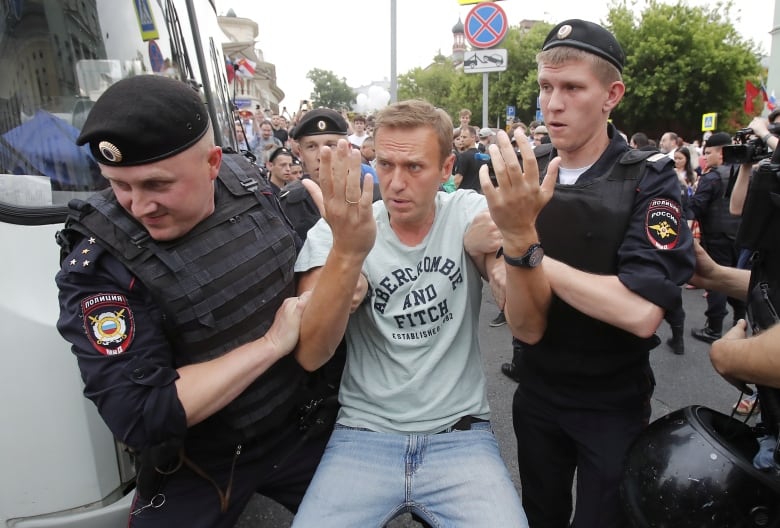
KGB whistleblower Alexander Litvinenko died in his early 40s in London in 2006 after being poisoned. British and European court inquiries pointed to Russian involvement in his death.
The death of tax account and whistleblower Sergei Magnitsky in prison three years later would spur a push for legislation that was passed in several Western countries to combat Russian corruption and human rights abuses.
In 2015, Russian politician Boris Nemtsov was assassinated on a Moscow bridge.
Czech Foreign Minister Jan Lipavsky mourned the death of Russians “who dream of a better future, like Nemtsov or now Navalny.”
Last year, longtime Putin ally Yevgeny Prigozhin was killed at 62, along with nine other people, after an explosion on an airplane. Prigozhin, leader of the mercenary Wagner Group, had clashed with Putin over the direction of the Ukraine war and led a weekend rebellion in Russia weeks earlier.
This post was originally published on this site be sure to check out more of their content.




